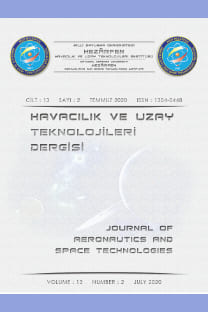Bilgi güvenliği ve özcük fonksiyonları uygulamaları
___
1.Aydın, H. 2003. Bilgi Güvenliği ve Özcük Fonksiyonu Uygulamaları, Yüksek Lisans Tezi, Hava Harp Okulu, HUTEN, İstanbul2.Çölkesen, R. 2001. Network, TCP/IP, UNIX. Papatya Yayınevi
3.Edwards, L. and Waelde, C. 2000. Law and the Internet: a framework for electronic Commerce. Hart Publishing, Oxford
4.Grant, L. 1997. Understanding Digital Signatures: Establishing Trust over the Internet and Other Networks. McGraw-Hill.
5.Kephart, J., Sorkin, G., Chess, D., and White, S. 1999. Fighting Computer Viruses.
6.Menezes , A., Van, P., S. Vanstone. 1996, Handbook of Applied Cryptography. CRC Press
7.Naor, M. 1989. Universal One-way Hash Functions and their Cryptographic Applications. Proceedings 21th Annual ACM Symposium on Theory of Computing, 1989, pp. 33-43
8.Digital Signature Standard (DSS), NIST FIPS Publication. 1994 NIST,. Washington DC
9.Secure Hash Standard (SHS), NIST FIPS Publication. 1995 NIST, Washington DC.
10.Örencik, B. ve Çölkesen, R. 2002. Bilgisayar Haberleşmesi ve Ağ Teknolojileri. İstanbul: Papatya Yayıncılık.
11.Preneel, K. 1996. Hash Functions Based on Block Ciphers and Quaternary Codes, Advances in Cryptology.
12.Saka, Y. 2000, Bilgisayar Ağ Güvenliği ve Şifreleme. Yüksek Lisans Tezi. Muğla Üniversitesi, MUĞLA.
13.Stallings, W. 1999. Cryptography and Network Security : Principles and Practice. Prentice Hall NJ.
14.Stalings, W. 2000. Data and Computer Communications. Prentice Hall NJ.
15.Stallings,W. 2000. Network Security Essentials. Prentice Hall NJ.
16.Stephen, N. 2001, Network Intrusion Detection. Indianapolis, Ind. : New Riders.
17.http://www.cisco.com/go/security/
18.http://www.cert.org/
19.http://www.computer.org/
20.http://www.ieee.org/
21.http://www.itl.nist.gov/fipspubs/fipl80-l.htm Secure Hash Standart.
22.http://www.itl.nist.gov/fipspubs/index.htm/ Federal Information Processing (FIPS) Standards Publications.
23.http://www.Symantec.com/
- ISSN: 1304-0448
- Yayın Aralığı: 1
- Başlangıç: 2003
- Yayıncı: Dr. Öğr. Üyesi Fatma Kutlu Gündoğdu
Uçak çizelgeleme probleminin karınca kolonileri optimizasyonu ile çözümü
CASA CN 235 uçağının dış aerodinamik yüklerinin hesaplanması
Zafer MERCAN, M. Adil YÜKSELEN
Hücresel yapay sinir ağları ile kızılötesi görüntülerde gürültünün temizlenmesi
Ali Orhan TOLLUOĞLU, Serdar KARGIN, Osman N. UÇAN, SEDEF KENT PINAR
Bilgi güvenliği ve özcük fonksiyonları uygulamaları
Lüle tasarımında yapay zeka kullanımı
Paralel mekanizmaların kinematiği,dinamiği ve çalışma uzayı
Elmas ANLI, Hüseyin ALP, Sait N YURT, İbrahim ÖZKOL
